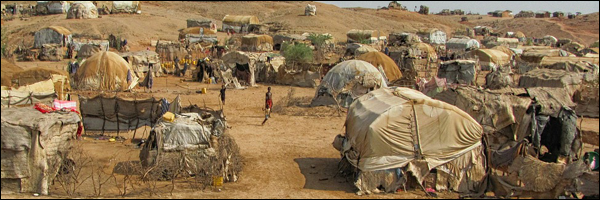
As I see the images of Syrian children washed up on Mediterranean beaches, my thoughts go to another fugitive—much older but hardly wiser. His name? Jonah. Unlike today’s refugees, however, Jonah wasn’t fleeing war, violence or hunger. He was running away from God. More precisely he was running away from the opportunity to be used as a conduit of God’s compassion. Jonah reveals his heart in Jonah 4:1-3:
But Jonah was greatly displeased and became angry. He prayed to the LORD, ‘O LORD, is this not what I said when I was still at home? That is why I was so quick to flee to Tarshish. I knew that you are a gracious and compassionate God, slow to anger and abounding in love, a God who relents from sending calamity. Now, O LORD, take away my life, for it is better for me to die than to live. (NIV)
Thousands of people in the ancient city of Nineveh (modern day Mosul, Iraq) repent and turn to God in sackcloth as a result of Jonah’s words, and Jonah’s response is to ask God to kill him. “It is better for me to die” (Jonah 4:3), he says, than to live and see you extend compassion to these people.
Jonah is angry. Really, really angry and perhaps rightfully so. After all, the Ninevites were Assyrians, people who weren’t afraid to flay Jonah’s countrymen alive in front of their wives and children and impale others on poles. In Jonah’s book, they were the absolute worst kind of people.
And yet God has a message for Jonah. Jonah thinks he has a right to be angry, but God has a right to be concerned. And so when Jonah stomps off and builds a shelter out of a few tree limbs, God does something. He sends a “Jack and the Beanstalk” type of vine–one of those vines that grows up super quickly. Sitting out in the hot sun all day, Jonah is exuberant about the vine and the shade it provides. However, the next morning his happiness once again turns to anger as God sends a worm to chew on the vine that God had made to grow. By mid-morning, he is steaming. The vine is wilted, the sun is beating down, and God has sent a scorching east wind. Once again he says, “It would be better for me to die than to live” (Jonah 4:8).
“But God said to Jonah, ‘Do you have a right to be angry about the vine?”
“I do,” Jonah said, “I am angry enough to die.” (Jonah 4:9)
“But the LORD said, ‘You have been concerned about this vine, though you did not tend it or make it grow. It sprang up overnight and died overnight. But Nineveh has more than a hundred and twenty thousand people who cannot tell their right hand from their left, and many cattle as well. Should I not be concerned about that great city?’” (Jonah 4:10-11). Jonah does not have a reply and neither do we. Suddenly we learn that God’s concerns are different and greater than our own. While we are worried about how someone has injured us or fearing someone taking advantage of us, God not only knows their name, he has nurtured them and cared for them. He has made them to grow and tended them. He cares deeply for them and values them.
Suddenly Jonah’s words in Jonah 2:8, “Those who cling to worthless idols forfeit the grace that could be theirs” pertain not just to those who worship other gods, they pertain to Jonah and perhaps to us as well. When Jonah chooses to flee from God in Jonah 1:3, he clings to a worthless idol and chooses to forfeit the grace or hesed (covenantal love) that could be his. Jonah is so concerned about keeping God’s covenantal love or hesed to himself that he fails to realize that in doing so, he is actually leaving it far behind. When Jonah runs away from the LORD, he isn’t just running away from the LORD, he’s running away from a relationship with the LORD—and all because he doesn’t want God to extend to his enemy the same kind of grace and compassion or covenantal love that he himself has received and experienced time and time again.
The irony of Jonah’s story is that he cannot outrun God or his covenantal love. When Jonah begins to sink into the depths of the sea, God sends a fish to eventually take him to dry land. When Jonah stomps off in a pout, God sends a vine to shade him. And when Jonah is drowning in self-absorption and self-righteousness, God sends a worm to destroy the vine and a scorching east wind to heat things up again. God has a lesson for Jonah and for us. Those people you think are far from me—those people you view as enemies—I love them. I have tended them and I know them. I am concerned for them.
The same might be said about Syrian refugees today. God knows them, has tended them and caused them to grow. When we choose to hold up fear rather than to extend love and hospitality are we not behaving in the same way as Jonah? Are we in our attempt to protect ourselves, our way of life and even our religion actually running away from God and forfeiting the covenantal love and grace that could be ours? Can we not hear God say, “But Syria has many, many innocent people. Should I not be concerned about that great country? Should I not be concerned…”
Pastor Laura
Author’s note: I am not suggesting Syria is an evil country or that the Syrian people are evil or that they are the enemy. I am simply responding to the general fear and suspicion currently being propagated towards Syrian refugees.
